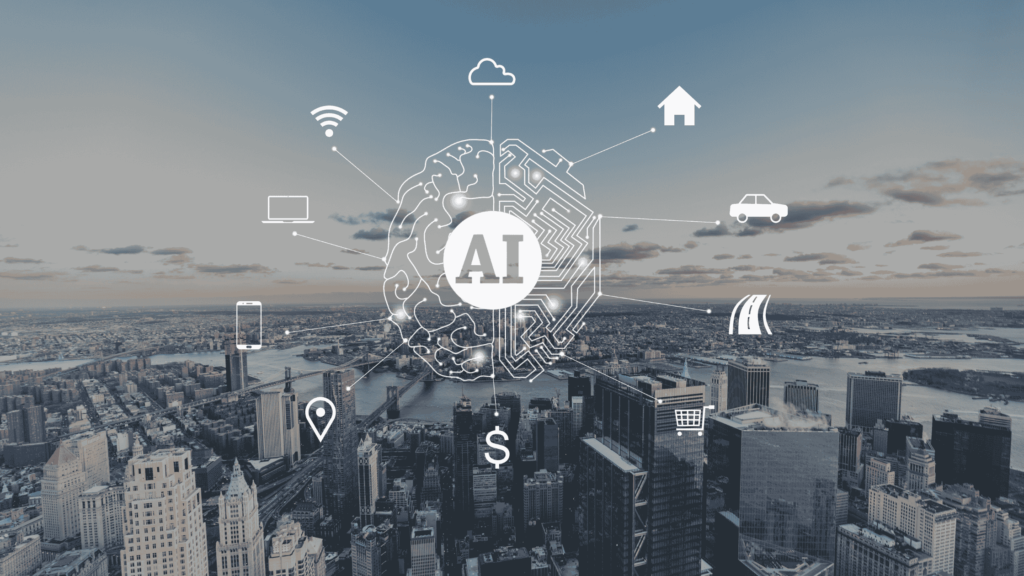In recent years, artificial intelligence (AI) has become a transformative force in various industries, and digital marketing is no exception. AI is not only reshaping the way businesses engage with customers but also driving efficiency, personalization, and business innovation. As we look ahead, AI’s role in digital marketing is expected to grow exponentially, changing how brands interact with their audience and optimize campaigns.
In this blog, we will explore how AI is revolutionizing digital marketing, current trends, and what the future holds for businesses.
AI in Digital Marketing: A Game Changer
AI’s rise in digital marketing is undeniable. From marketing automation to advanced data analytics, AI-powered tools are enabling businesses to operate smarter and more efficiently. Here are some key ways AI is transforming digital marketing today:
- Personalization at Scale
AI allows businesses to offer highly personalized experiences to users at scale. By analyzing massive amounts of data, AI can predict customer preferences and tailor content accordingly. Brands are now able to create hyper-targeted ads, personalized emails, and relevant content based on user behavior, making campaigns more effective and engaging. - Predictive Analytics and Consumer Insights
AI has the ability to analyze historical data to predict future trends. This is crucial in digital marketing, as brands can anticipate consumer behavior and optimize their strategies in advance. Tools like Google Analytics AI, for instance, help businesses forecast customer actions, improving decision-making processes and overall campaign success. - Chatbots and Conversational Marketing
One of the most visible applications of Artificial Intelligence (AI) in digital marketing is chatbots. They enhance customer service by providing real-time responses to queries, offering a more personalized user experience without the need for human intervention. Conversational marketing is becoming a vital component of customer engagement strategies, and AI-driven chatbots are leading the charge by providing 24/7 support. - Automating Advertising Campaigns
Marketing automation is significantly improved through AI-powered platforms. Google and Facebook Ads now leverage AI algorithms to optimize ad placement and budget allocation. This results in more cost-effective campaigns, better targeting, and higher ROI. AI also helps advertisers by automatically adjusting bids and targeting, reducing manual efforts.
Latest Market Trends in AI and Digital Marketing
The adoption of AI in digital marketing is rapidly expanding. Here are some of the latest trends that are shaping the future of AI-powered marketing strategies:
- AI-Generated Content: Tools like GPT-4 and others are being used to create engaging content automatically. While human oversight is still necessary, AI can help marketers generate blog posts, product descriptions, and social media content faster and more efficiently.
- AI-Powered Video Marketing: As video content continues to dominate, AI is being used to create automated video ads and personalize video marketing at scale. AI-driven video editing software is also making it easier for businesses to produce high-quality content with minimal effort.
- Voice Search Optimization: With the rise of AI-powered voice assistants like Alexa, Siri, and Google Assistant, optimizing content for voice search has consequently become a top priority for digital marketers. Specifically, AI is used to analyze voice queries and create content that aligns with user intent in voice searches.
- AI for Influencer Marketing: AI tools are increasingly being used to identify the best influencers for campaigns, monitor influencer activity, and measure the impact of influencer marketing efforts. This ensures better ROI from influencer partnerships.
Future Implications of AI in Digital Marketing
As AI continues to evolve, its impact on digital marketing will only deepen. Here’s what businesses can expect in the near future:
- Greater Automation: We will see even more advanced marketing automation, where Artificial Intelligence handles everything from campaign management to customer interactions. AI will drive efficiency, allowing marketers to focus on more strategic aspects of the business.
- Augmented Reality (AR) and Virtual Reality (VR): AI will play a significant role in enhancing AR and VR marketing experiences; consequently, brands will be able to create immersive campaigns, offering potential customers unique experiences that combine AI, AR, and VR.
- Enhanced Data Privacy and Security: With the growing importance of data, thus, AI will help businesses manage privacy concerns better. Furthermore, AI algorithms will be crucial in maintaining GDPR compliance and protecting sensitive customer information.
- Hyper-Personalization: In the future, marketing will become even more personal, as AI-powered tools will allow businesses to create individualized experiences for each customer. Brands will be able to deliver precisely what the consumer needs before they even know they need it.
How Businesses Can Adapt to AI-Driven Digital Marketing
To stay competitive, businesses must embrace AI and integrate it into their digital marketing strategies. Here are a few ways to prepare:
- Invest in AI Tools: Start by incorporating AI-driven tools for SEO, email marketing, social media, and advertising to optimize your campaigns.
- Focus on Data Collection and Analysis: AI thrives on data. The more data you have, the better your AI tools can work. Businesses should focus on gathering actionable data to improve decision-making.
- Train Your Marketing Team: Equip your team with the knowledge and skills needed to leverage AI in their marketing efforts. Understanding how AI works will be essential in maximizing its benefits.
Conclusion: Artificial Intelligence as the Future of Digital Marketing
AI is transforming digital marketing by enabling personalization, automation, and advanced data analytics at an unprecedented scale. As AI technology continues to evolve, businesses that embrace these changes will stay ahead of the competition. By leveraging AI-powered tools, marketers can create more effective, data-driven strategies that drive growth and innovation.
If you’re looking to keep your business ahead in the digital era, adopting AI into your marketing strategies is no longer optional—it’s essential. As AI takes a central role in the future of marketing, now is the time to explore how it can enhance your brand’s online presence and deliver better results.
Expand your reading list! Be sure to check out How to Create a Winning Social Media Strategy for Startups for more great content.

